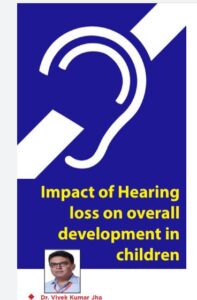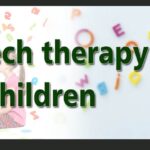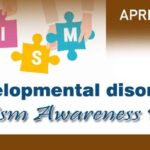Impact of hearing loss may cause problems with speaking, reading, school success, social skills and on overall development in children. With early help, a child may speak or use language furthermore as children who hear.


Hearing is vital to speech and language development and for learning. Audiologists can check children’s hearing and help with any problems and speech pathologists can check speech and language-related disorders. Hearing sounds and words help children learn to speak and understand. A toddler with hearing impairment misses out on these sounds, this may cause problems with speaking, reading, school success, and social skills. It’s important to the kid-tested if you’re thinking that he has trouble in hearing. Getting help early is essential for overall development.
Hearing loss in children can lead to:
- Delayed speech and language skills
- Learning problems in class
- Feeling bad about himself
- Having trouble in making friends
Learning Words:
Children with hearing impairment don’t learn words as fast as people who have normal hearing. They may:
- Learn concrete words like cat, jump, five, and red. However, they will have trouble with abstract words like before, equal to, and shy. They will not use words just like the, an, are, and a.
- Have trouble in knowing the various meanings of a word. Consider the word bat. It can mean a flying animal or what we use to play baseball. A toddler with a hearing impairment might not understand these meanings.
- Fall farther behind children with normal hearing as they grow up. Children with hearing disorders don’t catch up without help.
Learning Sentences:
Children with deafness may have trouble in understanding and using sentences. They may:
- Understand and use shorter sentences than children with normal hearing.
- Have problems with more complex sentences. They will not use clauses in their sentences. An example of a clause is “When I buy a home, I’ll eat dinner.” they’ll not use voice. An example of this can be “The ball was thrown by Mary.”
- Have trouble hearing word endings, like -s or -ed. They’ll not understand or use plural words, like cats. They’ll not use past/ like walked and possessives, like Bob’s, will be hard to listen to or use.
Learning to speak:
Children with hearing impairment cannot hear sounds well. They will have problems speaking clearly. They may:
- Not use seems like s, sh, f, t, or k. These are quiet sounds that are hard to listen to.
- Not hear their voices after they speak. They will be too loud or too soft. They’ll speak at a high frequency. People might imagine they mumble or sound different.
School success:
Children with deafness have trouble at school. Reading is the toughest for them. Some facts about hearing impairment and college success include:
- Children with mild to moderate hearing impairment may fall one to four grade levels behind without help.
- Children with the more severe hearing disorder might not learn past the third or fourth-grade level. School support will help them do better.
- Children with deafness don’t do as children with normal hearing. The gap between them grows over time.
- Children with deafness will do better at school if they get help early. This includes support from parents and families.
Social skills:
Hearing loss can make it harder to speak with others. Children might not want to speak or play with other kids. Children with deafness may
- Feel alone and like they need no friends.
- Be unhappy at school.
The most important thing you’ll do is to possess your child’s hearing test. With early help, a child may speak or use language furthermore as children who hear. An audiologist can test a child’s hearing. He or she will be able to consult with you about the most effective treatment. This could include medical treatment, hearing aids, or speech and language therapy. There are four major ways during which hearing impairment affects children:
- It causes delay within the development of receptive and expressive communication skills (speech and language).
- The language deficit causes learning problems that end in reduced academic achievement.
- Communication difficulties often result in social isolation and poor self-concept.
- It’s going to have an impression on vocational choices.
Effects on Vocabulary:
Vocabulary develops more slowly in children who have a hearing disorder.
- Children with hearing disorders learn concrete words like cat, jump, five, and red more easily than abstract words like before, after, equal to, and jealous. They even have difficulty with function words just like the, an, are, and a.
- The gap between the vocabulary of youngsters with normal hearing and people with hearing impairment widens with age. Children with hearing impairment don’t catch up without intervention.
- Children with hearing disorder have difficulty understanding words with multiple meanings. For instance, the word bank can mean the sting of a stream or an area where we put money.
Sentence structure:
- Children with deafness comprehend and produce shorter and simpler sentences than children with normal hearing.
- Children with deafness often have difficulty understanding and writing complex sentences, like those with relative clauses (“The teacher whom I’ve got for math was sick today.”) or passive (“The ball was thrown by Mary.”)
- Children with the hearing disorder often cannot hear word endings like -s or -ed. This ends up in misunderstandings and misuse of verb tense, pluralization, nonagreement of subject and verb, and possessives.
Speeking :
- Children with the hearing disorder often cannot hear quiet speech sounds like “s,” “sh,” “f,” “t,” and “k” and so don’t include them in their speech. Thus, speech could also be difficult to grasp.
- Children with hearing impairment might not hear their voices after they speak. they’ll speak too loudly or not loud enough.
Academics :
Children with deafness have difficulty with all areas of educational achievement, especially reading and mathematical concepts.
- Children with mild to moderate hearing losses, on average, achieve one to four grade levels not up to their peers with normal hearing, unless appropriate management occurs.
- Children with severe to profound deafness usually achieve skills no on top of the third or fourth-grade level, unless appropriate educational intervention occurs early.
- The gap in academic achievement between children with normal hearing and people with deafness usually widens as they progress through school.
- The level of accomplishment is said to be parental involvement and therefore the quantity, quality, and timing of the support services children receive.
Social functioning :
Children with severe to profound hearing losses often report feeling isolated, without friends, and unhappy at school, particularly when their socialization with other children with deafness is restricted. These social problems appear to be more frequent in children with light or moderate hearing losses than in those with severe to profound loss.


Dr. Vivek Kumar Jha
Professor (Speech Pathology & Audiology)
Department of Audiology & Speech Language Pathology
Faculty of Behavioural Sciences
SGT University, Gurugram, Haryana
Email: jhavivek98@yahoo.com
Mob: 9560276840











